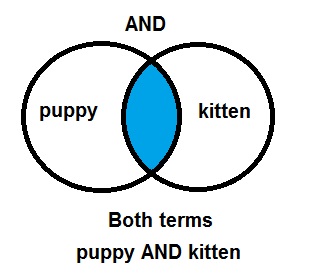
Steps to Locating Information
Research typically involves using a variety of sources including:
- encyclopedias and dictionaries
- books
- videos
- articles from newspapers, magazines and journals
- statistical sources
- websites
To create the most effective and efficient searches, utilize the search strategies listed under Step 2: Locate Information.
Determining Information Need
Posted with permission of Elizabeth Housewright at Cal State Fullerton's Pollak Library.
Resource Tracking
- Resource Tracking Form
Keep track of all of the citation, location, and content summaries for each resource.
Track all of the resources you find with the Resource Tracking Form:
Information Cycle - University of Washington Libraries
A thorough look at the cycle of information exemplified by the reporting of the 2011 Tōhoku (Japan) earthquake and tsunami. Shared with permission from University of Washington Libraries, 12:29 length.
Find Books Using Library Catalogs
As a Monmouth College patron, you have access to three tiers of library catalogs.
- Locate physical books, DVDs and media owned by Hewes Library; select Ebooks included
- Materials may be print or digital and are immediately available on campus
- Locate and borrow books owned in other Illinois academic libraries
- To request an item first login to the library catalog. Learn more about requesting materials via I-Share.
- Materials are delivered to Hewes Library in 3-5 days *NOTE: COVID-19 quarantines will cause an added 1 day delay.*
- A larger, international library catalog, WorldCat, allows identification of materials beyond the Hewes Library and the I-Share Catalog. (Be sure to check these catalogs first.)
- Materials identified in WorldCat may be requested using WorldShare.
- Items may take 7-14 days to arrive. *NOTE: COVID-19 quarantines will cause an added 1 day delay.*
Interlibrary Loan
If you come across a book you need for your research, and the Library does not own it, request it through our Interlibrary Loan service.
Interlibrary Loan requests can take up to 2 weeks to process, but is completely free.
Catalog Search Tips
- Any Field, default, searches all words in all fields.
- Advanced Search allows more complex and multiple field searches.
- For a more specific search, choose Title, Author or Subject.
- On the results screen, Refine Your Results allows additional resource to narrow your focus.
Boolean Searching
Boolean operators (connector words) such as AND, OR, and NOT, create phrases based on rules of search logic.
| Operator | Examples | Results |
| AND |
|
Retrieves records that contain ALL of the search terms. |
| OR |
|
Retrieves records that contain ANY of the search terms, but does not necessarily include all of them. |
| NOT |
|
Excludes records containing the second search term. |
Boolean Searching Visualized

Truncation/Wildcard Symbols
Truncation and wildcard symbols can broaden your search and allow you to look for variations of words.
For example, searching sport* would bring up variations such as sport, sports, sporting, and sporty.
Note: The truncation symbol varies depending on the electronic resource you are searching. For more information, consult the database’s “help” or “search tips” pages.
Tip!
Are you finding too much information or perhaps not finding enough? Use alternative, narrower, or broader keywords to vary your results.
Truncation Examples
Truncation
The “*” replaces any number of characters and will find all forms of a word root.
- child* LOCATES child, children, childhood
- therap* LOCATES therapy, therapies, therapist, therapists, therapeutic, therapeutically
Wildcard
Note: symbols used may differ based on the tool used. Consult the help documentation.
Wildcard "#" replaces any extra characters that may appear in alternative spellings.
- colo#r LOCATES color, colour
Wildcard "?” replaces one character
- ne?t LOCATES neat, nest, or next, but will not find net
Print Periodicals
The Library subscribes to many browseable print magazine, journal and newspaper titles.
The most recent issues can be found on display on the main floor of Library. Recent back issues can be found in the same location behind the current issue (lift the shelf). Older issues are located on the lower level in the Bound Periodicals section.
Choosing a Database
Article databases provide you with 24-7 access to magazine, journal and newspaper articles via the Internet. To help you identify the most appropriate database for your topic/subject:
- consult the database descriptions on the Library's Databases by Subject page
- check to see if there is a research guide that covers your subject area or topic.
Article Formats
Article databases provide you with 24-7 access to magazine, journal and newspaper articles via the Internet. To help you identify the most appropriate database for your topic/subject:
- consult the database descriptions on the Library's Databases by Subject page
- check to see if there is a research guide that covers your subject area or topic.
Database Access Off Campus
All of the databases provided by Hewes Library can be accessed from off campus. To do so, follow these directions:
- Select the database you wish to access from the Hewes Library website.
- You will be prompted by a Monmouth College login screen.
- Enter your MC network username and password.
- Once logged in, use the resource as if you were on campus.
Journal Locator
Use the Journals A - Z Periodicals List to find journals, magazines, or newspapers that are available through Hewes Library in either electronic or print format.
Interlibrary Loan
If you come across a book you need for your research, and the Library does not own it, request it through our Interlibrary Loan service.
Interlibrary Loan requests can take up to 2 weeks to process, but is completely free.
Tip!
Remember to evaluate websites for reliability and accuracy before you use them in your research assignments.

Google Scholar provides an easy way to search for scholarly literature across many disciplines and resources.
